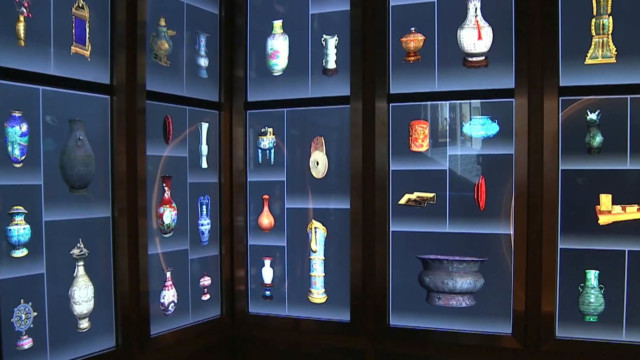It’s now possible to tour Beijing’s Forbidden City, without actually setting foot there. A social networking app allows would-be visitors to take virtual tours of parts of the city.
More than 400,000 Imperial artifacts have been digitized.
But as CGTN’s Roee Ruttenberg reports, the job is far from complete.
For some 500 years, the corridors of China’s Imperial Palace were off-limits to non-royals. The Forbidden City, as it became known, opened-up just in the last century. Now, a museum – it attracts more visitors each year than any other in the world.
A new social networking app now allows those visitors to share their stories online. And museum administrators are working in other ways to deepen the experience.
Su Yi oversees an ambitious effort to digitize nearly two million artifacts. Her team’s just a quarter of the way there.
“The technology is changing every day. It can help us become more efficient,” said Su, who is the director of the Palace Museum Institute for Digitization. “But it also poses a challenge. New equipment makes our older methods outdated.”
In April, the museum announced it had found another 55,000 artifacts. One by one, thousands of items are being photographed by highly-skilled professionals. A smaller number are being captured using 3D technology, and then placed inside virtual replicas of Palace rooms.
“Everything has to be very precise, to reflect the true nature of the building,” Senior Digitization Engineer Ouyang Hong said. “And it can be very challenging to convert the large scale numbers into an accurate 3D representation.”
Now, patrons of the Forbidden City, or Palace Museum as it’s also known, can virtually visit areas still closed-off to the public. Curators hope the digital data will also help researchers get a fuller picture of what life was like during Imperial times. There’s nothing quite like being here in person to experience the majesty, the history, and the culture. The digitalization process isn’t meant to replace that, but rather supplement the old … with something very new.
“China has a long history,” Su said. “But the world doesn’t fully understand Chinese culture or the Chinese people very deeply. We want to use the internet to help change that.”
 CGTN America
CGTN America

